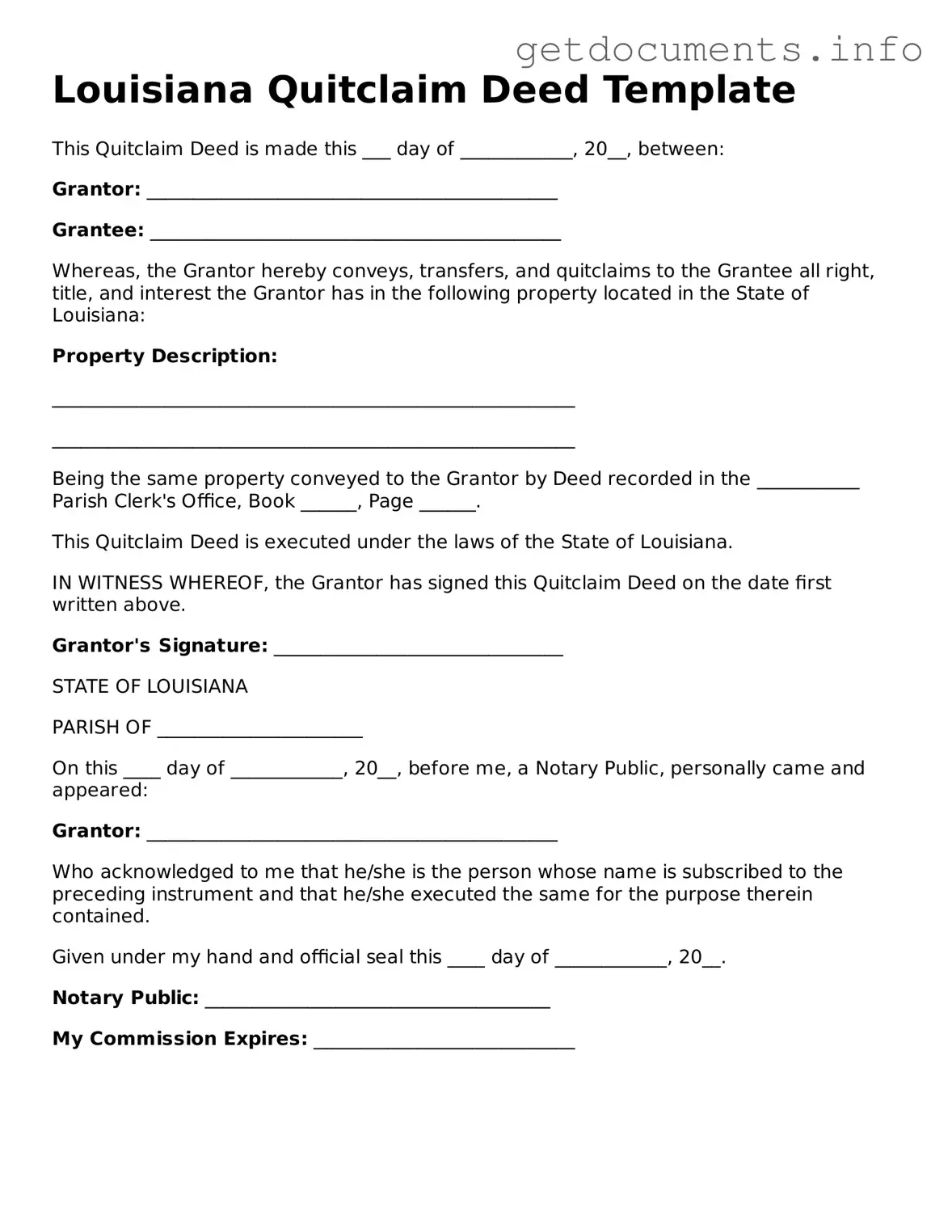Free Quitclaim Deed Template for Louisiana
A Louisiana Quitclaim Deed is a legal document that allows a property owner to transfer their interest in a property to another party without guaranteeing that the title is free from defects. This form is often used in situations where the parties know each other well, such as family transfers or when the property is given as a gift. Understanding how to properly fill out this form is essential for ensuring a smooth transfer of ownership.
Ready to fill out your Louisiana Quitclaim Deed? Click the button below to get started!
Access Quitclaim Deed Editor

Free Quitclaim Deed Template for Louisiana
Access Quitclaim Deed Editor
Got places to be? Complete the form fast
Fill out Quitclaim Deed online and avoid printing or scanning.
Access Quitclaim Deed Editor
or
⇩ PDF File
